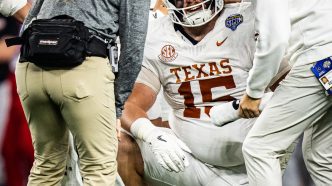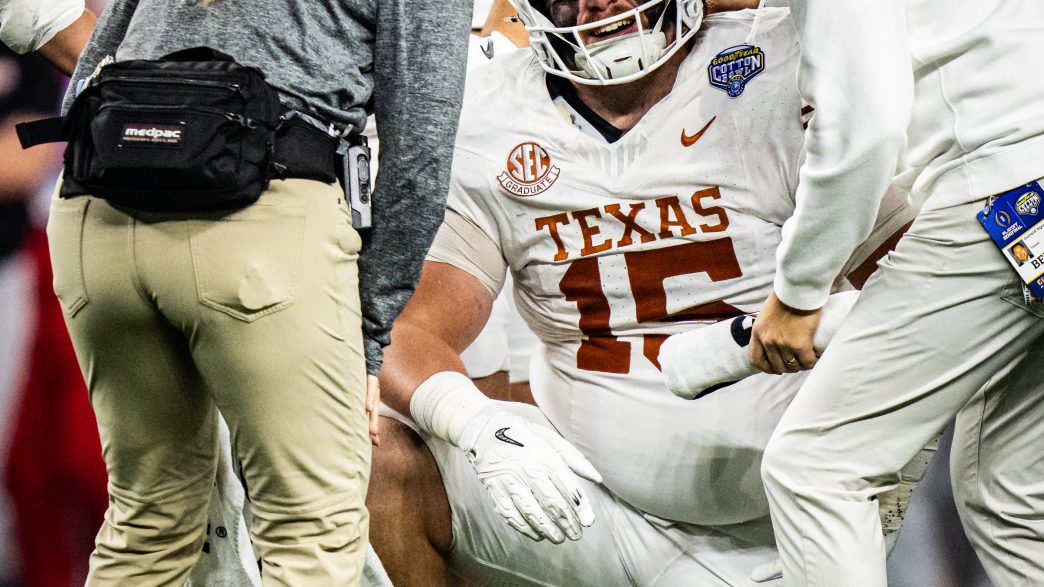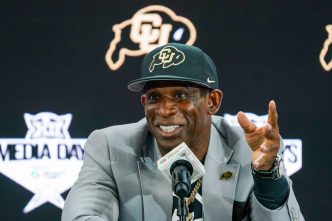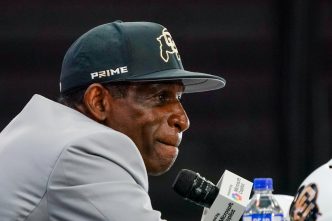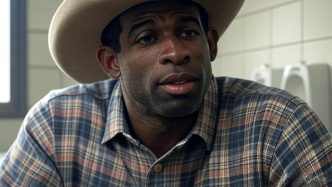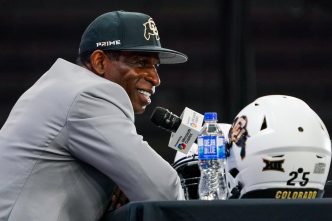A seismic shift might be on the horizon for college football if coaches have their say on a proposed new rule targeting injury tactics. According to reports circulating from the American Football Coaches Association, there’s a push for a measure that could significantly reduce instances of seemingly fabricated injuries on the field.
This change, as outlined, would require any injured player to sit out for the remainder of their team’s drive. Such a rule aims to curtail the controversial tactic where players deliberately hit the turf, potentially to halt the clock or disrupt the opposing team’s momentum. However, teams would still have the option to burn a timeout to reintroduce the player into the action if deemed fit during the same drive.
This isn’t a new conversation; college football has grappled with the ethical grey zone of strategic injuries for some time. Last November, the SEC made waves by hinting at punitive measures for teams suspected of such practices.
One notable voice in support of the crackdown is Ole Miss head coach Lane Kiffin. Despite facing accusations of employing similar tactics, Kiffin has been vocal, highlighting that his team’s up-tempo playing style could be unfairly disadvantaged by fake injuries. In his words, “I’ve been saying this for years… faking an injury hurts us more than anybody, us and Tennessee, probably more than anybody in America.”
A vivid illustration of this issue occurred during a game in September when Ole Miss running back Matt Jones dramatically hit the turf, raising eyebrows. The college football rulebook, as it stands, doesn’t directly ban fake injuries, leaving officials in a bind when trying to enforce fair play. NCAA rules analyst Matt Austin remarked on the broadcast that, while unethical, there are currently no rulebook provisions expressly prohibiting the act.
Calling out these dubious strategies, Kirk Herbstreit didn’t mince words. Expressing his frustration during a game, he described the practice as “unethical as hell,” lamenting how frequently players are seen dropping after a significant play, undermining the spirit of the game.
With a 2025 season kickoff as a target, coaches and college football administrators are actively seeking viable solutions to this persistent issue. The objective is clear: to refine the game and ensure it’s played with the integrity and excitement fans cherish. It’s a step towards preserving the sport’s dynamism in the face of strategic ploys that can stifle its natural tempo and flow.

